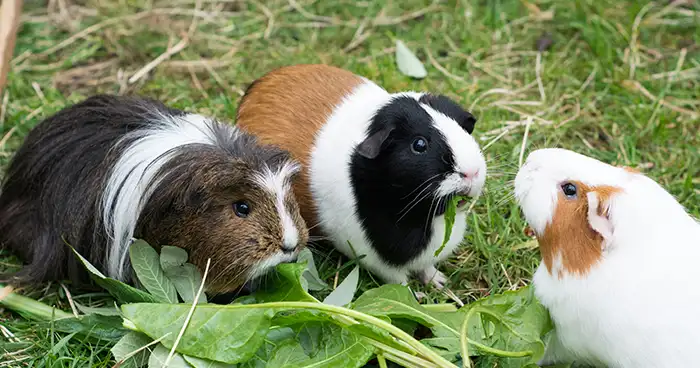If you are considering bringing a guinea pig into your home, you are in for a delightful and rewarding experience. Guinea pigs, also known as cavies, are adorable and sociable pets that make wonderful companions. However, caring for them properly is essential to ensure they lead a happy and healthy life. In this guide, we will explore how to take care of guinea pigs for beginners.

Understanding Guinea Pig Habitat
The first step in caring for a guinea pig is creating a suitable habitat. A spacious cage is necessary, as guinea pigs love to explore and play. The cage should be made of wire or plastic with a solid bottom to avoid any foot injuries. Line the cage with a soft bedding material like hay or fleece to provide comfort for your furry friend.
Proper Nutrition
A balanced diet is crucial for the well-being of guinea pigs. They require a constant supply of fresh hay, such as Timothy hay, which aids in digestion and keeps their teeth from overgrowing. Additionally, provide them with fresh vegetables like carrots, bell peppers, and leafy greens. High-quality guinea pig pellets should also be included in their diet, but be sure to check the packaging for the right serving size.
Clean Water
Guinea pigs need access to clean, freshwater at all times. Regularly check their water bottle or dish and refill it as needed. Hydration is essential for their overall health, so ensure they never run out of water.
Social Interaction
Guinea pigs are social animals and thrive in the company of others. It is recommended to have at least two guinea pigs together, as they enjoy companionship. If you only have one guinea pig, be prepared to spend extra time interacting and playing with them to fulfill their social needs.

Handling and Taming
When handling guinea pigs, always be gentle and calm. They can be a bit skittish at first, so it’s essential to give them time to get used to you. Gradually start taming them by offering treats and speaking softly to create positive associations.
Regular Health Check-ups
Guinea pigs are generally hardy animals, but regular health check-ups are still essential. Schedule visits to a veterinarian with experience in treating guinea pigs to ensure their well-being. Watch out for signs of illness, such as weight loss, lethargy, or abnormal behavior, and seek medical attention if needed.
Providing Enrichment
Keep your guinea pigs mentally stimulated by providing enrichment activities. Place toys, tunnels, and hideouts in their cage to encourage exploration and play. Rotating toys and adding new ones occasionally will prevent boredom.
Grooming and Hygiene
Regular grooming is necessary to keep your guinea pig’s coat clean and healthy. Long-haired breeds may require more frequent grooming to prevent matting. Additionally, trim their nails regularly to avoid overgrowth and discomfort.
Safe Environment
Guinea pigs are curious creatures, so it’s vital to ensure their environment is safe. Remove any hazards, such as toxic plants, wires, or small objects that they could chew on and potentially swallow.
Recognizing Signs of Illness
Be attentive to any changes in your guinea pig’s behavior or appearance, as these can be signs of illness. Lethargy, loss of appetite, excessive sneezing, or crusty eyes are all indications that they might be unwell. If you notice any of these signs, consult your veterinarian promptly.
Conclusion
Caring for guinea pigs can be a joyful and fulfilling experience. By providing a suitable habitat, a balanced diet, social interaction, proper handling, and regular health check-ups, you can ensure that your guinea pigs live a happy and healthy life. Remember to prioritize their well-being, and your furry friends will reward you with love and companionship for years to come.
